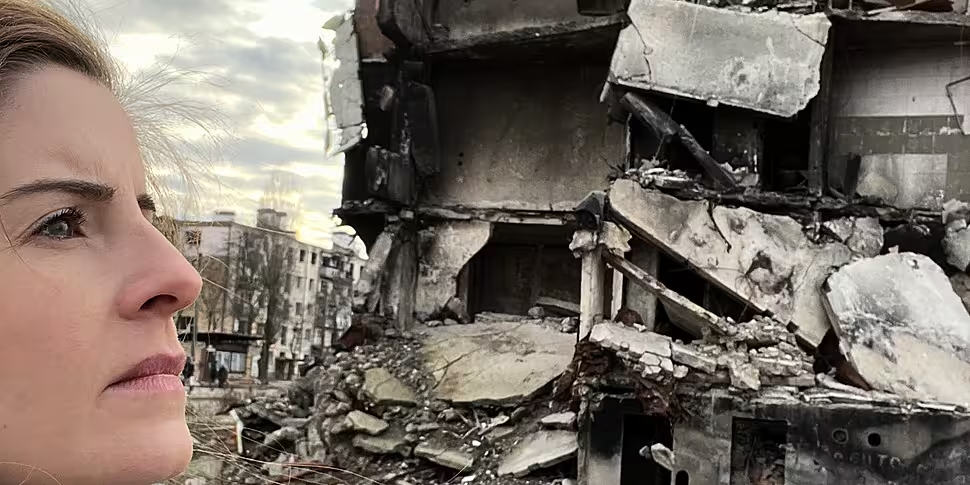When you decide to go into a warzone, your mind goes to the worst-case scenarios first – and to be honest, it stays there for a while.
The only practical precautions you can really take are things like insurance, security risk assessments and buying a warm coat. Beyond that, I didn’t know what to expect.
So here are three things I learned from my week in Ukraine:
- You haven’t seen resilience until you’ve spent time with people living in a war zone.
- You get used to the sound of air raid alarms remarkably quickly.
- Ukrainian food is delicious (including the traditional soup borscht served in a hollowed-out head of raw cabbage)
It’s still quite surreal to be home after all I saw and learned in those intense days last week travelling around Kyiv and to be honest, I’m still processing it.
I’m about as far from a war correspondent as one gets on the journalism spectrum, but this trip was about telling the stories of the people who’ve remained in Ukraine.
 The "car graveyard" memorialises the civilians who were shot dead in their vehicles by Russian forces as they tried to flee. Image: Aisling Moore/Newstalk
The "car graveyard" memorialises the civilians who were shot dead in their vehicles by Russian forces as they tried to flee. Image: Aisling Moore/NewstalkWhen the news broke that Russian tanks were rumbling along the roads towards Kyiv this time last year, the world was shocked – but none more so than the people of Ukraine who woke up to the unfamiliar sound of missiles landing on their cities.
They didn’t believe this would happen, and yet in the space of a few hours, they were thrust into a full-blown war.
Here, in Western media, we call it the first anniversary of the war in Ukraine, but Ukrainians label it the first anniversary of “total war” or “total invasion.”
For them, this war began with the annexation of Crimea in 2014.
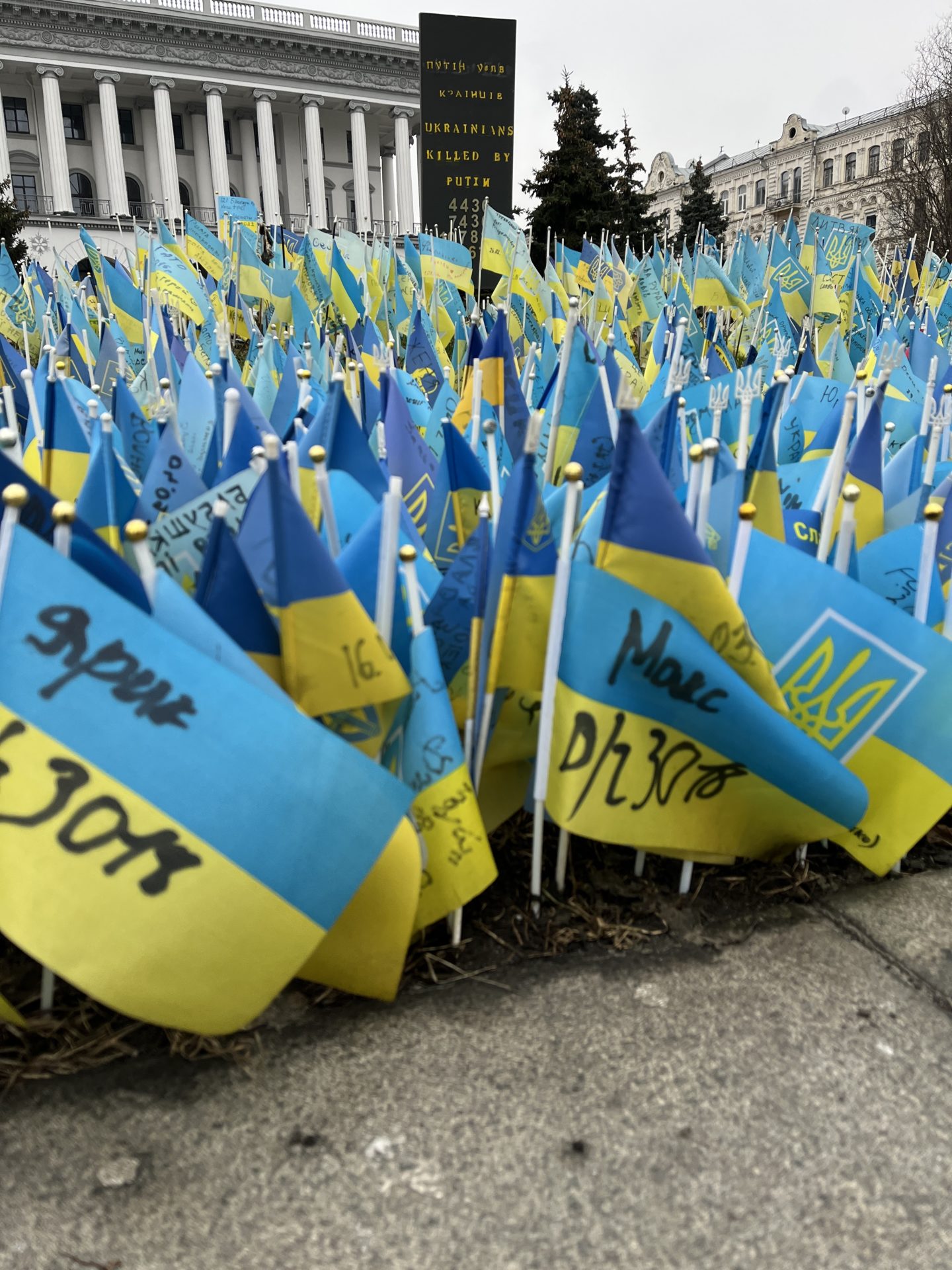 Ukraine flags in memoriam to the dead in Kyiv. Image: Aisling Moore/Newstalk
Ukraine flags in memoriam to the dead in Kyiv. Image: Aisling Moore/NewstalkMany experts expected the Ukrainian forces to crumble within days, but they weren’t betting on the resilience and determination of her people.
President Volodymyr Zelenskyy said “When you attack us, you will see our faces. Not our backs, but our faces.”
That is a sentiment Sean Moncrieff and I met time and time again. We heard, ‘when we win the war’ from everyone we met.
They also thanked us for our bravery in travelling over to tell their stories.
Our bravery.
This, coming from civilians who’ve learned how to assess the threat of the almost daily air raid alerts, people whose families have been split apart by death, enlistment and evacuation.
And they were thanking us? It seemed so bizarre.
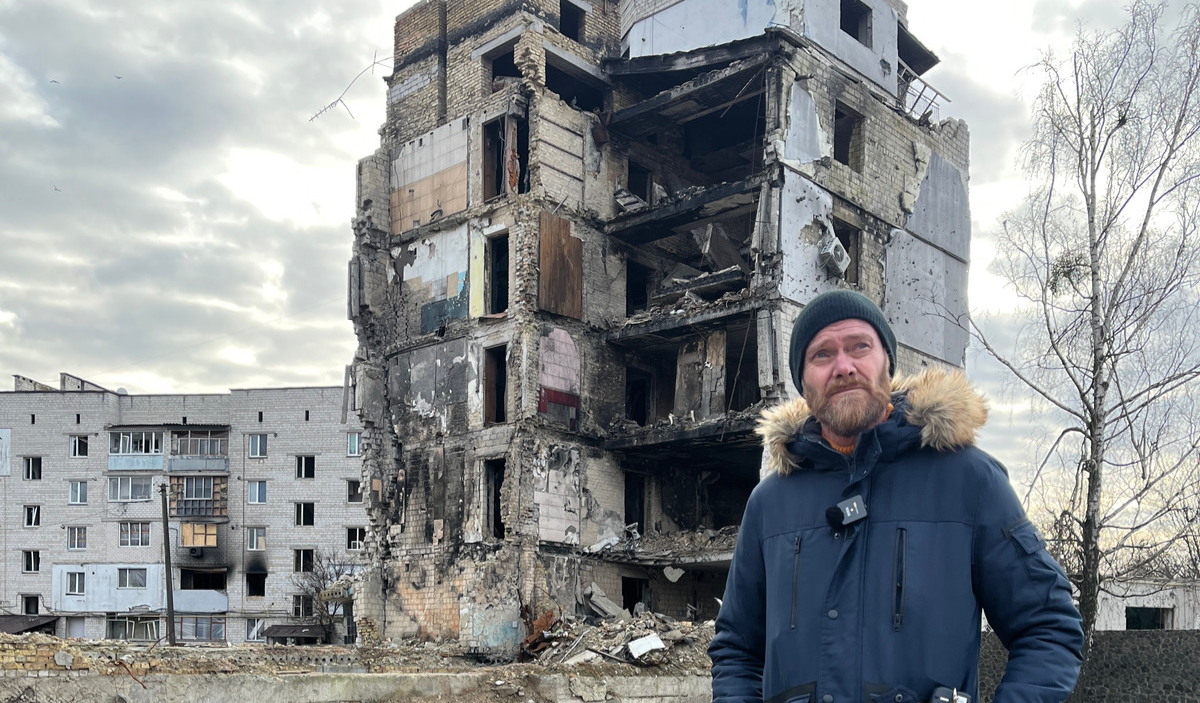 Newstalk’s Seán Moncrieff In Ukraine.
Newstalk’s Seán Moncrieff In Ukraine.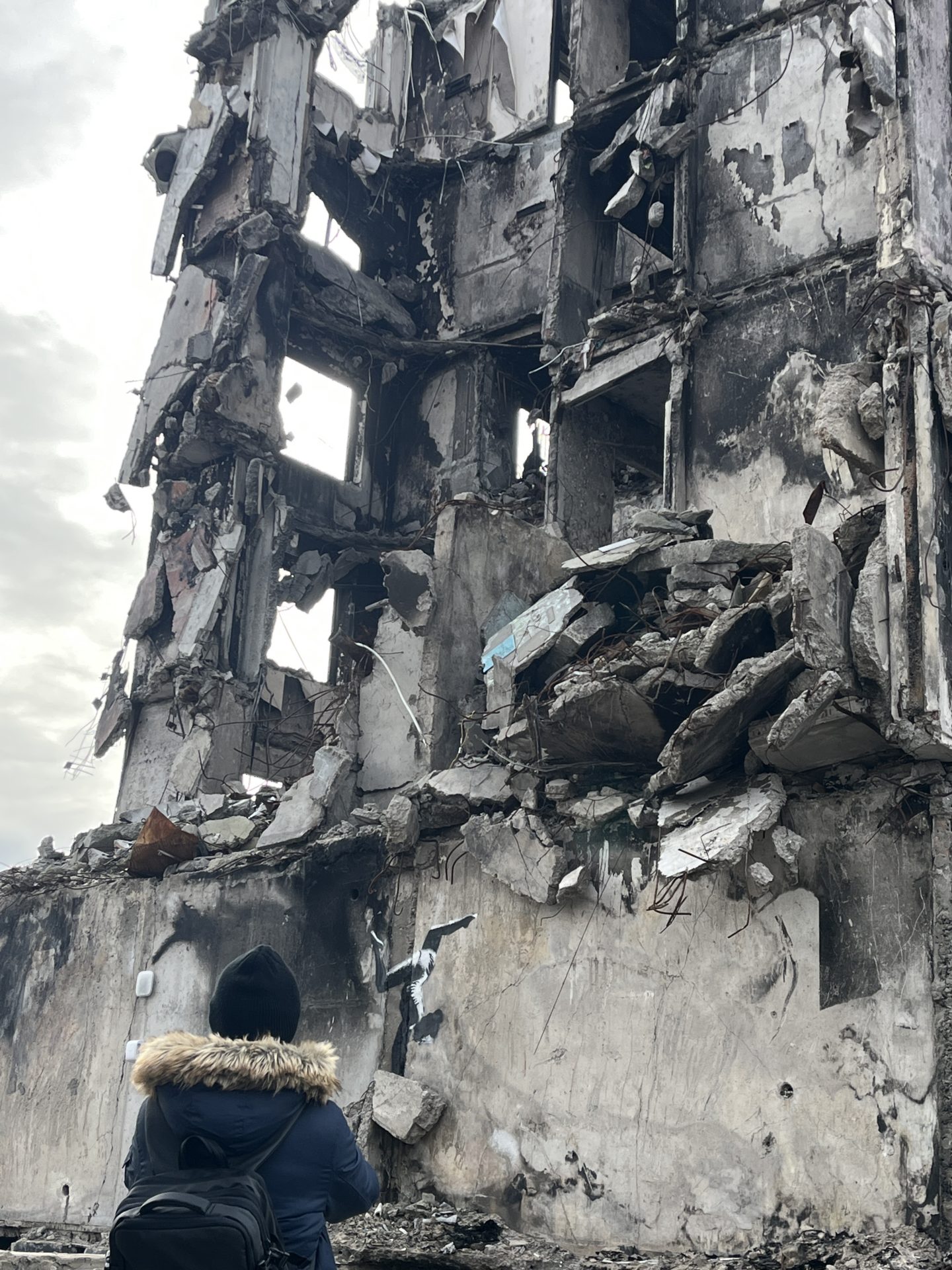 Newstalk’s Seán Moncrieff in Ukraine. Image: Aisling Moore/Newstalk
Newstalk’s Seán Moncrieff in Ukraine. Image: Aisling Moore/NewstalkSo how do you live any kind of normal life in a war zone?
In the current situation, it depends on where you are in Ukraine. If you’re along the south or south-eastern borders, it’s impossible. Families with loved ones in towns and villages in these provinces may not have heard from them in months – and they fear the worst.
If you’re in Kyiv, Lviv, or other major cities, it’s actually quite possible to go about your business.
The Ukrainian air defence is strong, so many of the attempts made to attack major urban areas are intercepted and taken out in the skies.
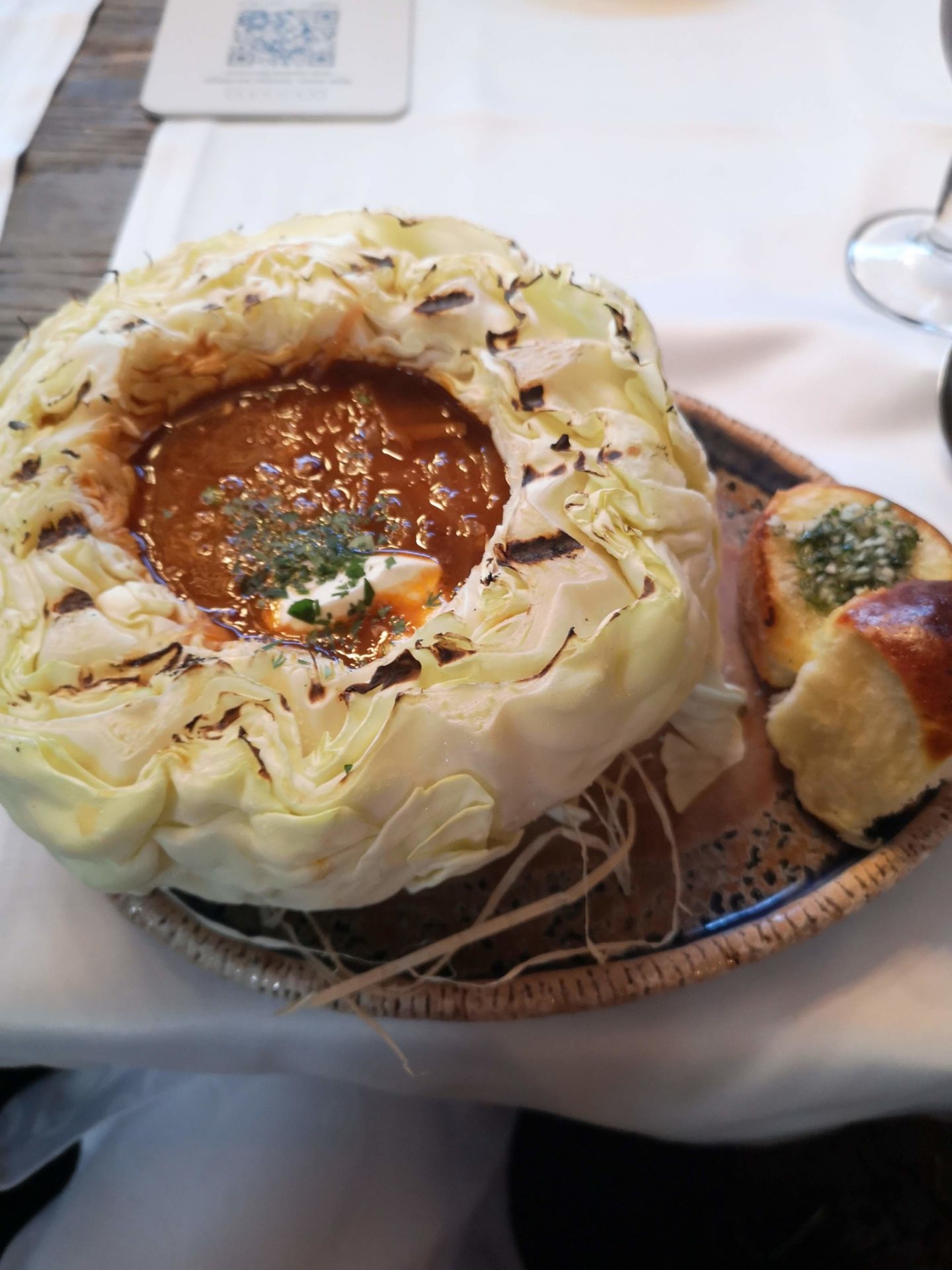 The delicious Ukrainian delicacy borsht. Image: Aisling Moore/Newstalk
The delicious Ukrainian delicacy borsht. Image: Aisling Moore/NewstalkCan’t hear the air raid alert sirens? There’s an app for that.
There are quite a few actually and the government will usually issue details about the reason for an alert within about 10 minutes, so most people make educated decisions about whether it is an alert worth going to a shelter for.
A plane travelling toward the city? Get to the bunker.
An unidentified object floating along? Keep eating your lunch.
Only in the last two weeks have the daily blackouts stopped, but even at that, people learned to batch cook, keep snacks and water in their bags at all times and make sure the power bank is charged in case the mobile runs out of battery.
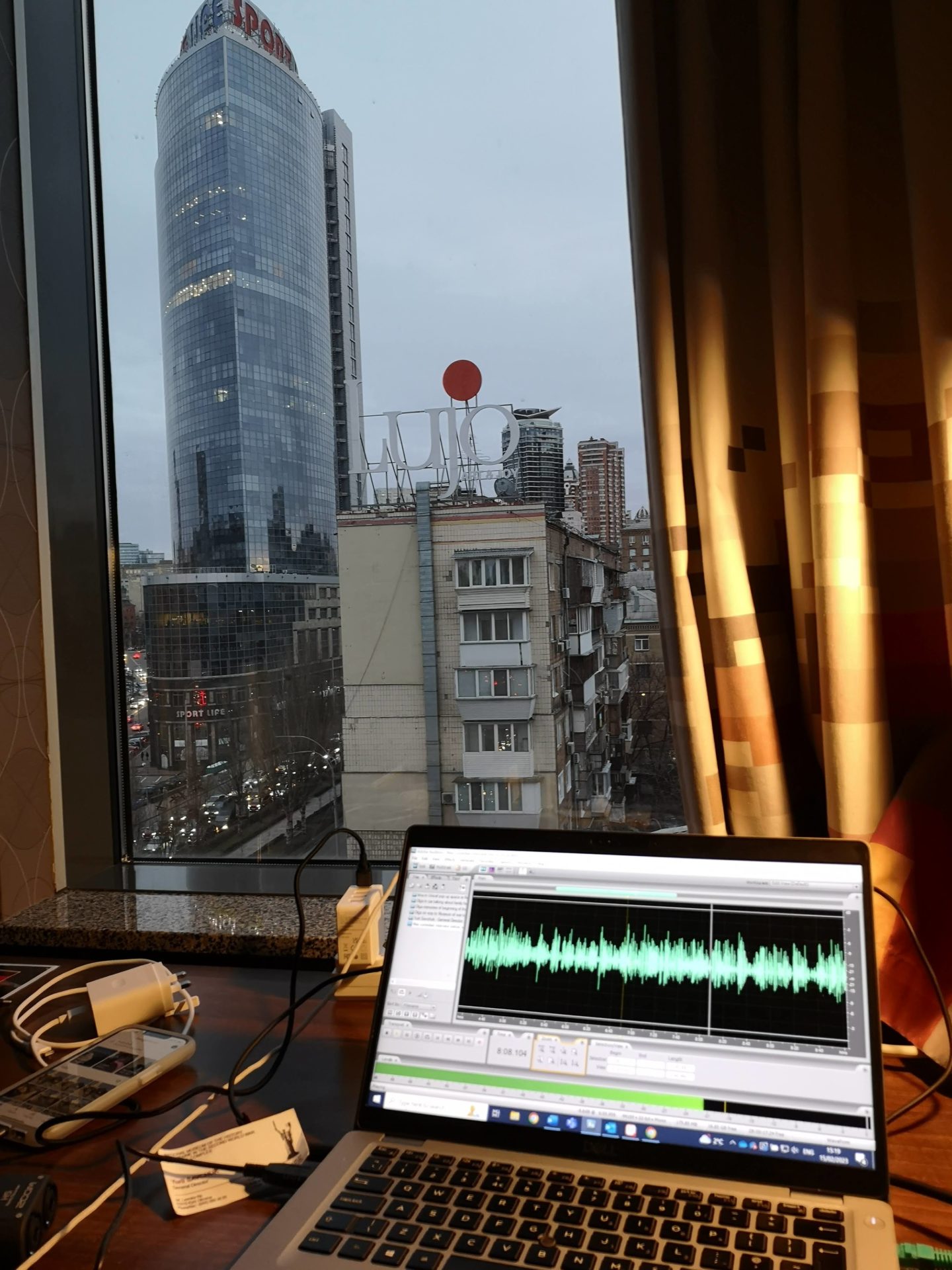 Editing while looking out towards the Kyiv skyline. Image: Aisling Moore/Newstalk
Editing while looking out towards the Kyiv skyline. Image: Aisling Moore/NewstalkThe city feels like any other European centre, filled with restaurants, high-end clothing stores, art installations, theatres, green spaces, busy footpaths and traffic congestion.
It is also astonishingly beautiful, owing to its rich and complex history.
There are glass-wrapped skyscrapers akin to New York, other areas feel more like 18th-century Vienna, and of course, there are the Soviet-era blocks of imposing concrete.
For the citizens who have chosen to stay or return to the capital, life continues almost normally now.
They go to work, they do the shopping, and they go to gigs. They eat out and celebrate Valentine's Day with flowers and gifts.
It's like an act of defiance in the face of adversity – giving two fingers to Putin.
 Graffiti in a Kyiv suburb. Image: Newstalk
Graffiti in a Kyiv suburb. Image: NewstalkBut scratch beneath the surface, and you realise this is survival mode. This is about coping in an ongoing disaster, with a major threat lurking in the skies at all times.
At any moment, the president of a neighbouring country could try yet another full-scale attack that would mean more death, destruction and terror. So, people don’t ever fully relax.
We met families whose neighbours and loved ones were killed or tortured and left to decompose in the streets – and those who survived lost absolutely everything they owned.
Many of them in the suburban cities of Irpin and Borodyanka are now living in modular housing with no idea when they might once again live in a home of their own.
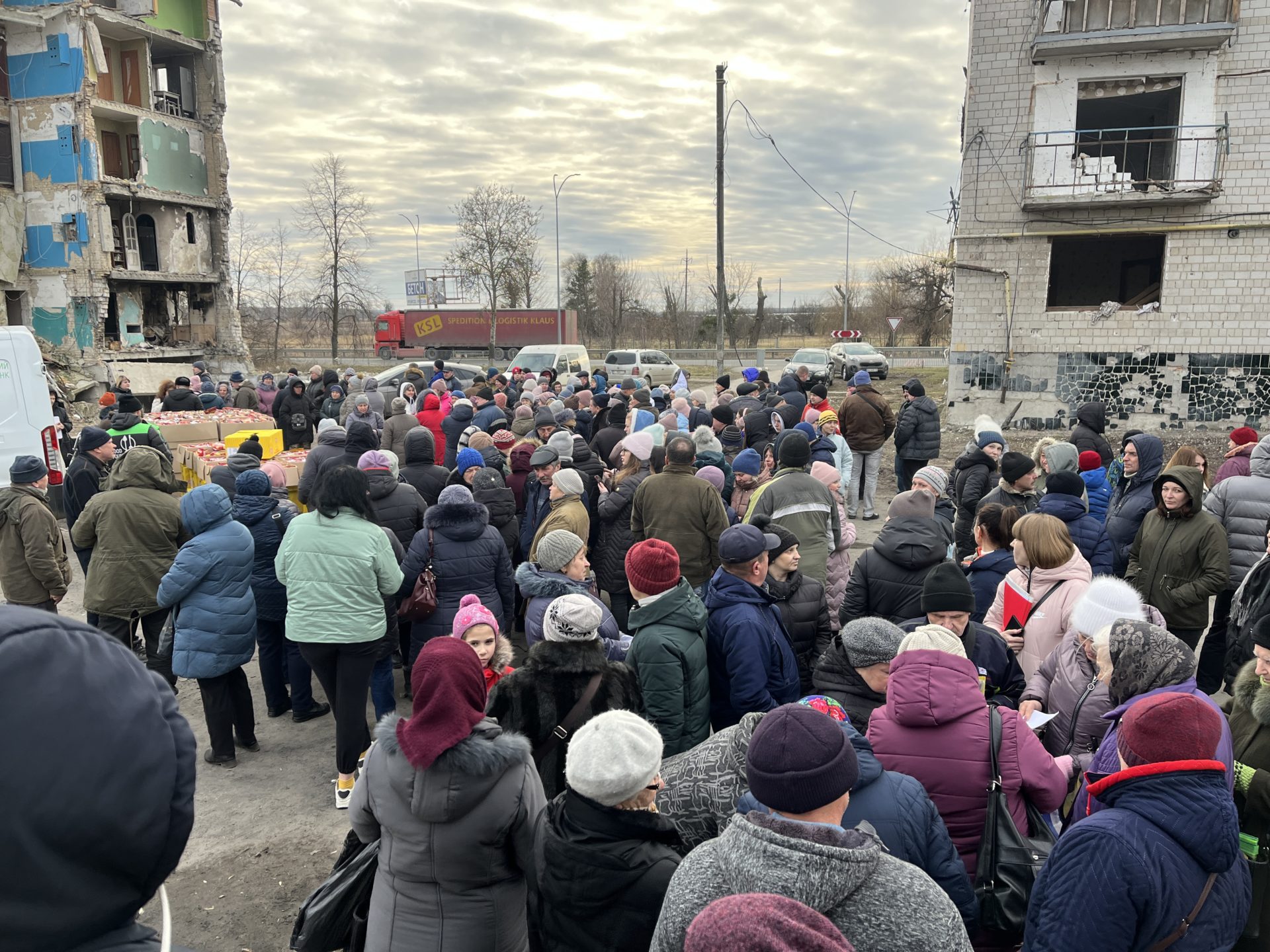 Locals queue for food in a bombed-out area in Borodyanka. Image: Aisling Moore/Newstalk
Locals queue for food in a bombed-out area in Borodyanka. Image: Aisling Moore/NewstalkOne former soldier described Ukraine as a nation of veterans and highlighted how this war has upended the lives of every single citizen.
A child therapist told us about the trauma and anxiety that young children are learning to cope with.
A war crime investigator told us about the 20 or more civilians who were tortured with electricity in the basement of a building in a small town in Kherson – they remain unaccounted for.
 Russian soldier's boots in Kyiv war museum. Image: Aisling Moore/Newstalk
Russian soldier's boots in Kyiv war museum. Image: Aisling Moore/Newstalk A destroyed Russian helicopter rotor outside a Kyiv war museum. Image: Aisling Moore/Newstalk
A destroyed Russian helicopter rotor outside a Kyiv war museum. Image: Aisling Moore/NewstalkThere’s a museum dedicated to pulling artefacts from the liberated areas of the city and her surrounds that displays them in an exhibition of the ongoing war: Russian soldiers’ boots and passports, twisted metal from the slide of a bombed playground, a TV screen melted on one side by the ferocity of the flames that engulfed a home.
Even walking around Kyiv is a tale of two cities.
One minute you’re looking up at a gold-topped cathedral, the next your attention is drawn to an office block with ten floors obliterated from its side by a Russian missile strike.
Rusted Russian artillery is displayed and graffitied on the main squares as a sign of the strength of the Ukrainian army.
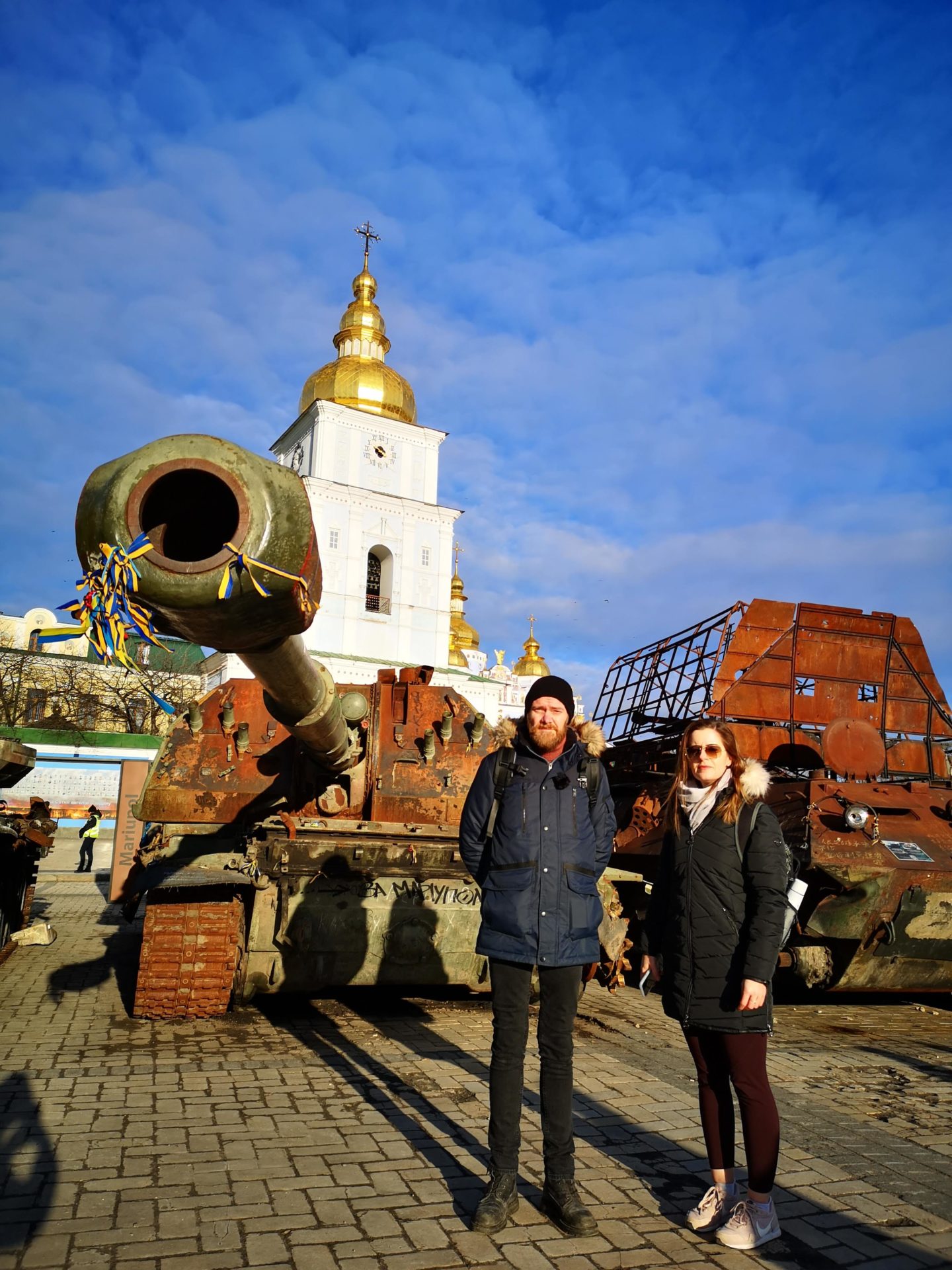 Sean Moncrieff and Aisling Moore beside destroyed Russian tanks and military equipment in Kyiv. Image: Aisling Moore/Newstalk
Sean Moncrieff and Aisling Moore beside destroyed Russian tanks and military equipment in Kyiv. Image: Aisling Moore/Newstalk Destroyed Russian military vehicles in Kyiv. Image: Aisling Moore/Newstalk
Destroyed Russian military vehicles in Kyiv. Image: Aisling Moore/NewstalkDespite all of this, the Ukrainians we met are utterly steadfast in their belief that they will win this war or Russia will collapse.
For them, this is a war to end centuries of aggression and conflict.
Our fixer, Olga, invited Sean and I to return to the city for ‘the biggest international party the world has ever seen’ when this war is over.
I don’t know if we’ll make the party, but I’ll definitely return to Kyiv as a tourist one day.
This was an experience that will stay with me forever, and I've been truly inspired by the resilience and courage of the people we met.


